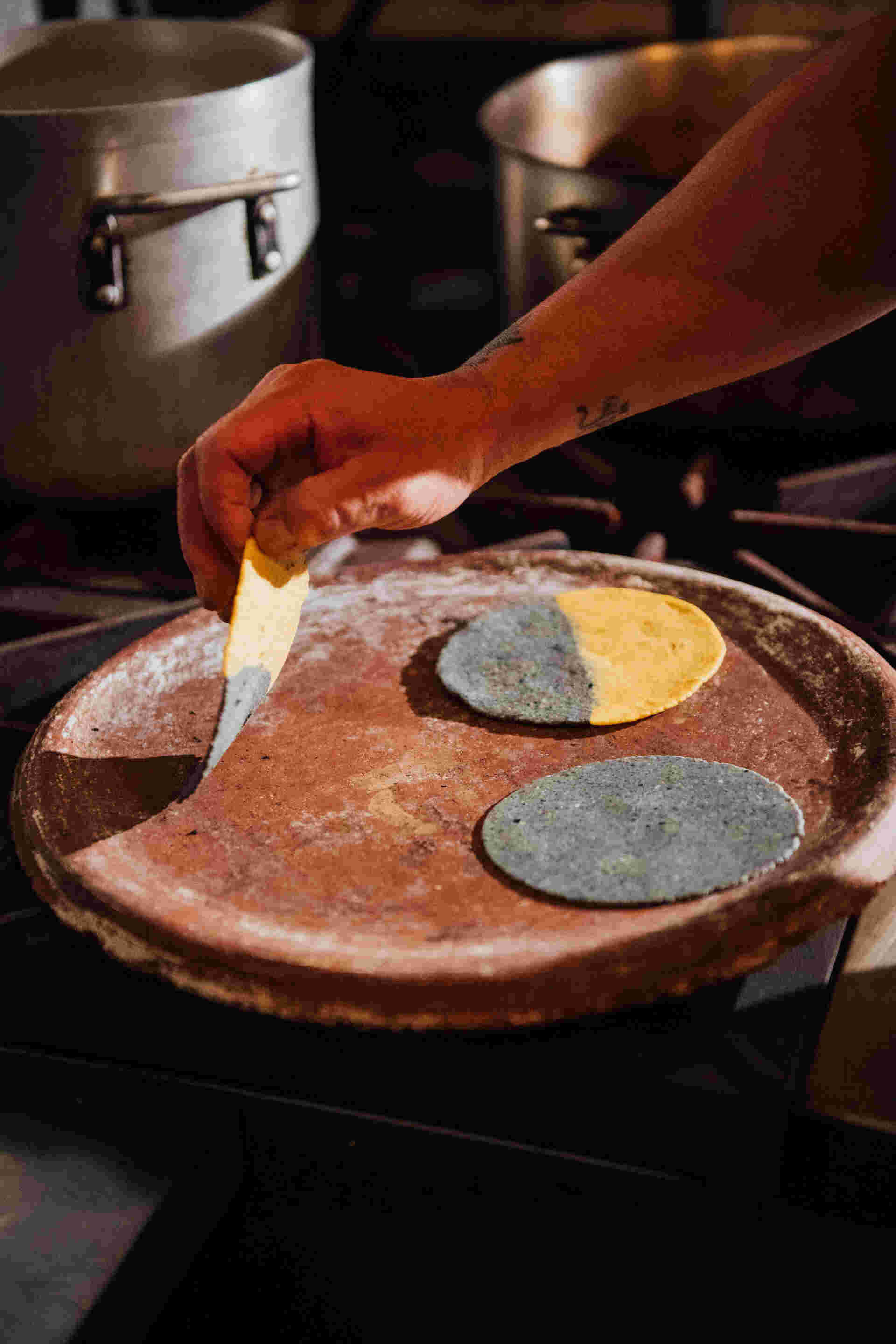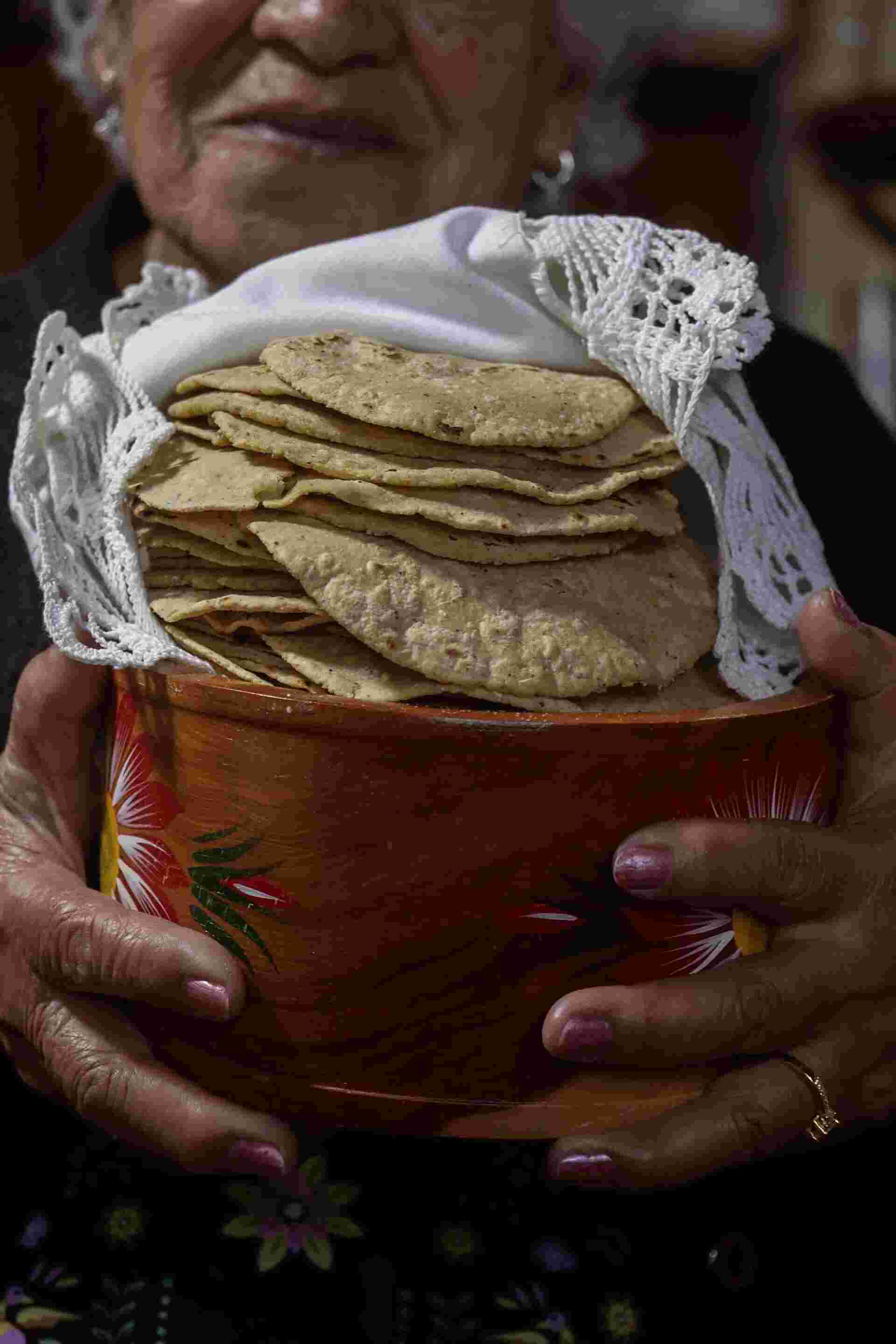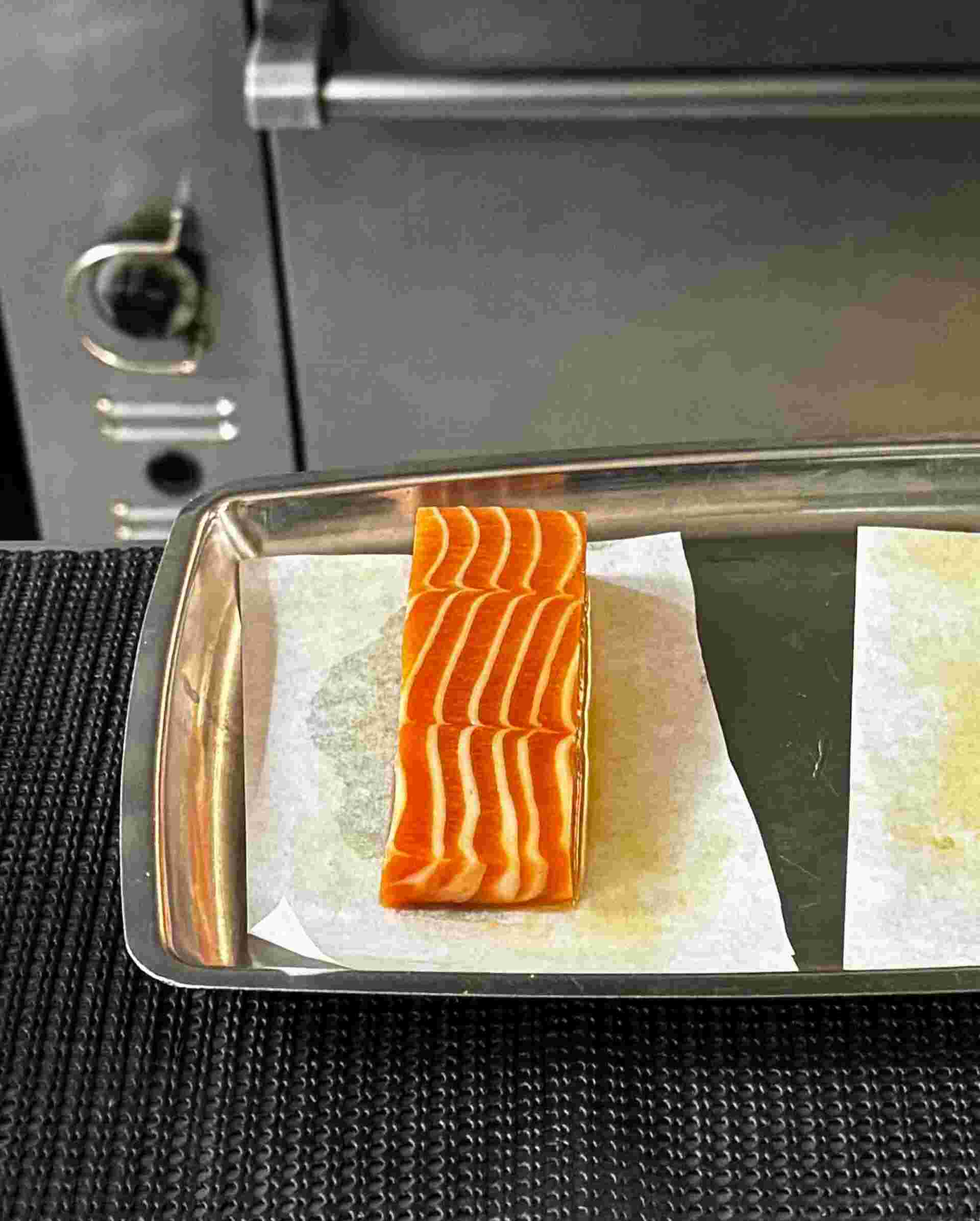
Plant-based Salmon by New School Foods
Made New School Foods perfects the flake in plant-based salmon.
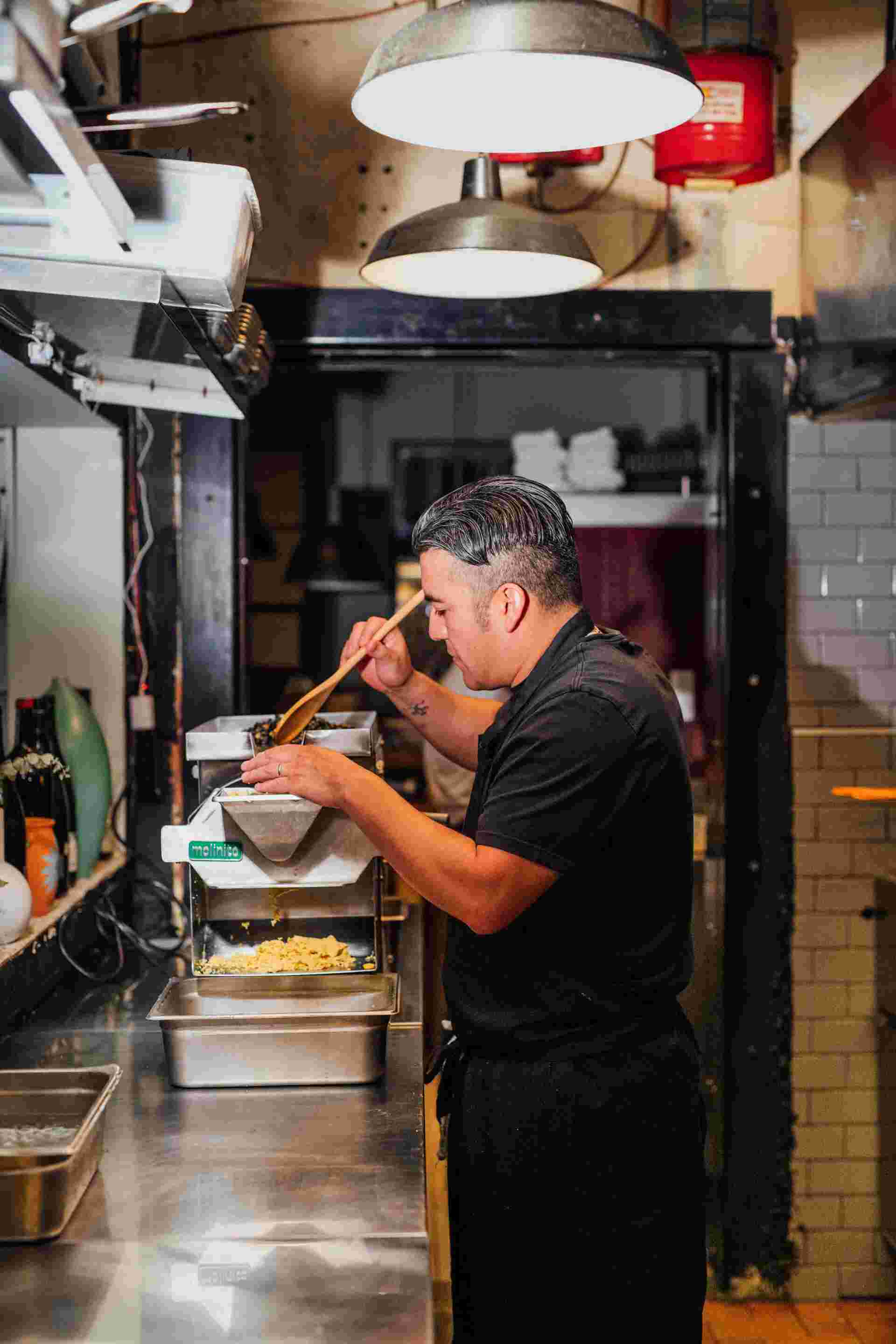
BY SARA BARON GOODMAN
PHOTOS BY ALISON SLATTERY (TWO FOOD PHOTOGRAPHERS)
Most people familiar with Montréal’s Outremont neighbourhood wouldn’t immediately associate it with Mexican food. In truth, Canada as a whole has always been a bit lacking when it comes to authentic and thoughtful representations from the country. And yet, this is where Alma, the best Mexican restaurant outside of Mexico—according to the prestigious Culinaria Mexicana guide—resides, run by the husband-and-wife chef-and-sommelier duo of Juan Lopez Luna and Lindsay Brennan.
The couple opened Alma in the spring of 2018 and transitioned its wine-focused Catalonian-inspired locavore menu to a high-end (but still wine-obsessed) love letter to masa and Mexican cuisine last year. The pandemic and its aftermath had brought a necessary shift in not only the Alma business model but also a sort of aha moment for Lopez Luna, who emigrated from Guadalupe in the town of Ixtenco, in the Mexican state of Tlaxcala, when he was 16 years old.

Lindsay Brennan and Lopez Luna in Oaxaca, Mexico, in January 2025
“Juan had this very profound moment of recognizing that Mexican food had been so much a part of his personal life and identity but wasn’t a focus professionally,” Brennan recalls. “He had been cooking mostly European and Québécois-style food and was like, ‘What am I doing?’” Lopez Luna, nodding reflectively, agrees: “I wasn’t looking at Mexican food in the way that we’ve been taught to look at Italian, French or Spanish food.” It’s true that in the diaspora, Mexican cuisine is often typecast as cheap and thought of quite narrowly. But “Mexico is massive—there are so many techniques and traditions,” says Lopez Luna.
And there’s no limit when your head, heart and plate are all connected.
While tradition is very much at the heart of what they’re doing at Alma, their vision is in no way traditional—just taste their food to see. The last savoury item and wine pairing on the current menu, a favourite of both Lopez Luna and Brennan, exemplifies their cross-cultural approach: a 30-ingredient mole poblano that pays homage to his aunt’s recipe (for which she is locally famous) served with Quebec duck breast that’s aged in Quebec koji salt before being charcoal grilled and served on a three-corn tortilla. It’s washed down with a wine pairing from one of their favourite winemakers from the French part of Catalonia: “She produced this bottle that’s named after our restaurant,” says Brennan. The label, fittingly, is inspired by Mexican folk art.
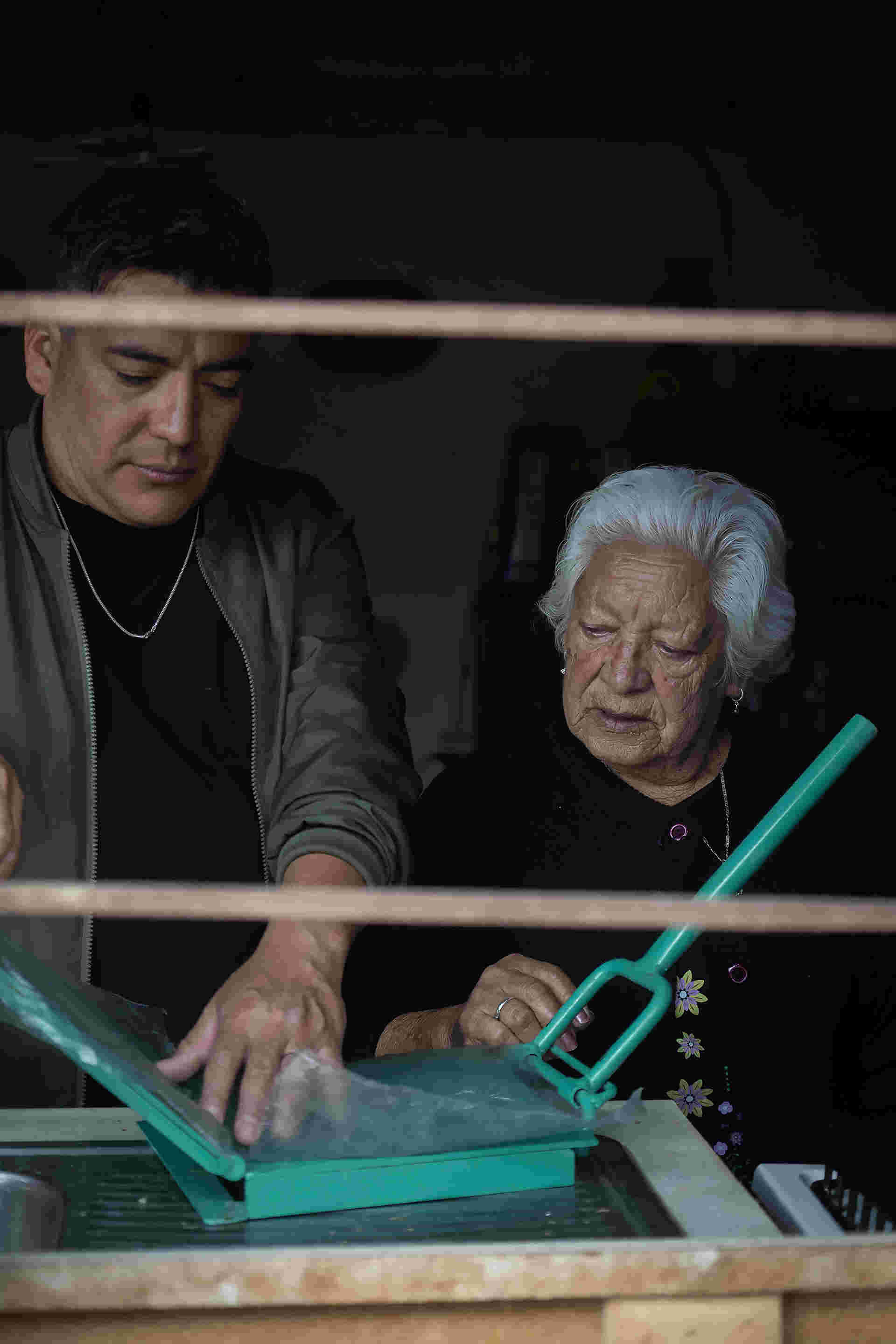
At home in Guadalupe, Tlaxcala, Mexico. Lopez Luna with his 88-year-old abuela, Guillermina Berruecos Cevallos, making tortillas with fresh masa made of local blue heirloom corn using a traditional press like the one she gave him, which Lopez Luna uses at Alma.
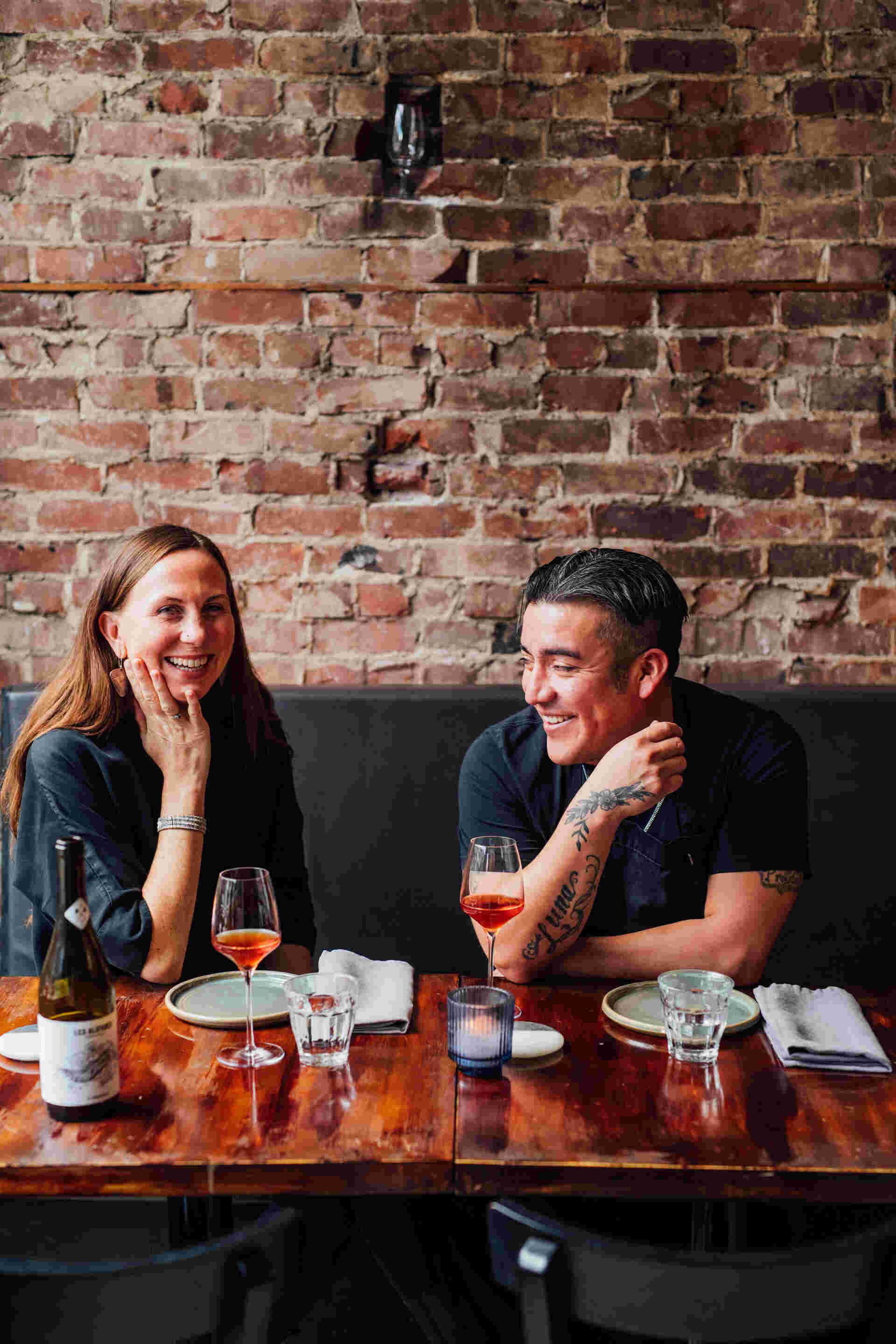
“In a city like Montréal there’s a lot of healthy competition with great chefs and restaurants, and we wanted to be different from the beginning,” says Lopez Luna. For Alma, that meant cooking wine-led recipes, which begged a question: How would the Mexican menu pair with the Catalonian wine list? Turns out, they’re a match made in terroir heaven.
For both Brennan and Lopez Luna, so much comes down to roots. Brennan’s fascination with Catalonia, a region of Spain that shares many political and cultural similarities to Quebec, comes from her upbringing in Montréal. Lopez Luna’s childhood, on the other hand, was spent in the shadow of the Malinche volcano, watching the matriarchs of his family boil big pots of water to nixtamalize corn—a process that involves softening the kernels for processing into masa—for fresh tortillas every morning. The first time that Juan breathed in the aroma of nixtamalized corn at the restaurant, which they now do every day, “there were a few tears,” he admits.
Corn, like wine, is a product of its terroir. It so happens that Ixtenco is not dissimilar from Catalonian wine country in its volcanic soils, salty minerality blown in from the sea, strong winds and hot, sunny days. “The elements of sunshine and freshness and saltiness and smokiness translate very well,” says Brennan.
And then there are the roots of the corn. While the restaurant’s produce, meat and fish are sourced locally, they bring in heirloom corn varieties from small producers in Ixtenco. Working with Mexican farmers for masa is a method of giving back to Lopez Luna’s ancestral land, which is especially important as more GMO corn enters Mexico and with it a rich heritage is at risk of disappearing. For Lopez Luna and Brennan, bringing heirloom corn to Alma is not just a matter of quality and taste; it is also an act of political resistance.
This summer, Alma’s roots will expand even further as its sister bar, formerly Tinc Set, becomes Bar Luz. In short, the Catalonian wine list stays, sourced by Brennan’s importing company Vin I Vida, but the menu and interiors will look to Mexico, rather than Spain, for inspiration. Think tacos on homemade tortillas, guisados (rich braised stews common to central Mexico) and other local and seasonal fare, with a big highlight on vegetables and seafood.
There’s no limit when your head, heart and plate are all connected.
And maybe the most exciting part is that the refurbished space will allow them to nixtamalize their corn and make tortillas on a larger scale, for wholesale distribution. It’s just another way that they are furthering the mission of bringing quality, heirloom, consciously produced Mexican masa to the people of Montréal.
“I think something we’ve realized since closing Tinc Set, and looking forward to the opening of Luz, is getting comfortable with the idea of evolving and allowing our creativity to guide us,” says Brennan. “Restaurants have often been a space that’s so repetitive; you have your one concept. We’re excited to allow our restaurants to reflect our own lives and evolution.”
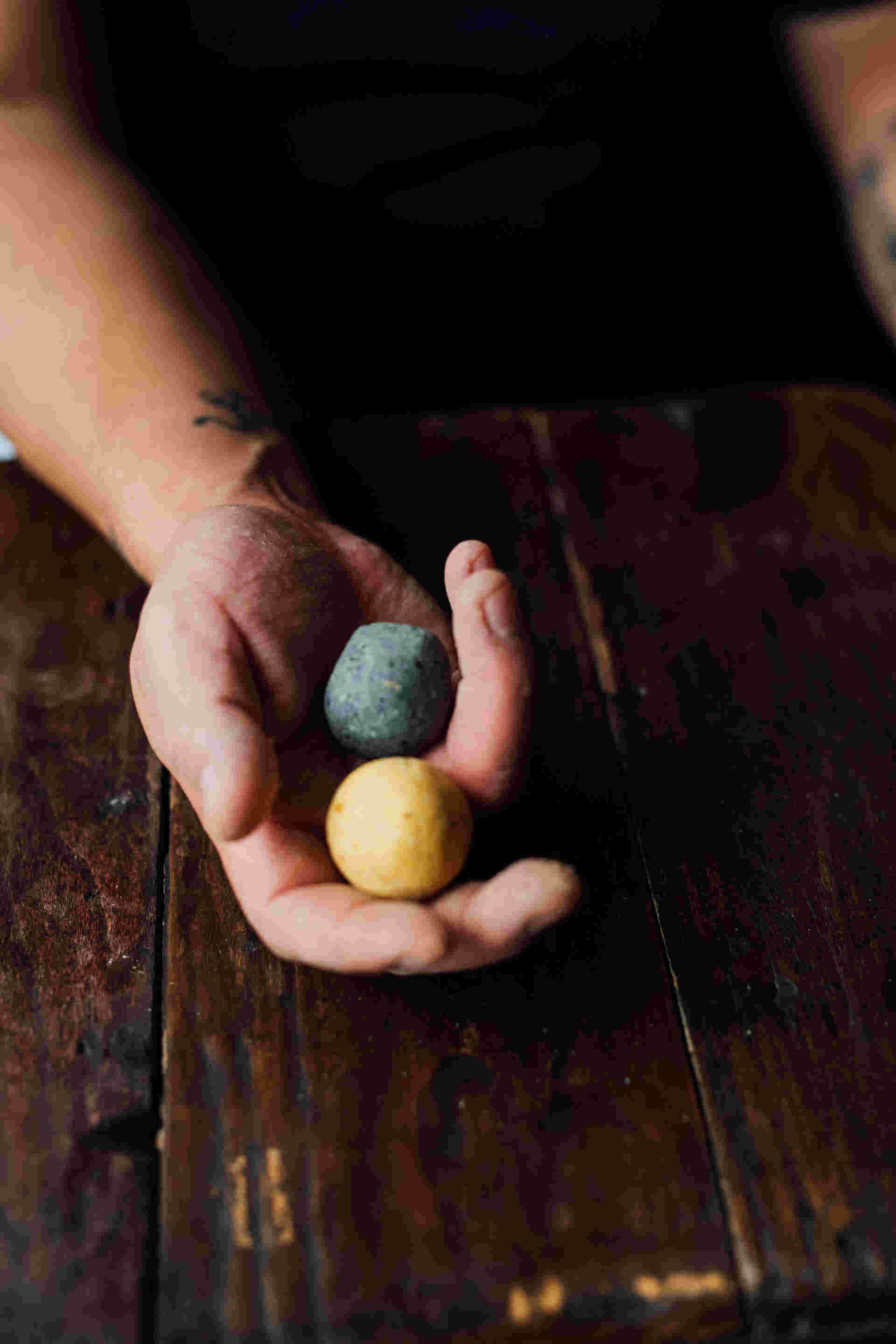
Nixtamalization is a traditional Meso-American process used to prepare maize by soaking to remove the outer layer, making the corn more digestible. It’s then ground into masa, a dough used to make tortillas.
